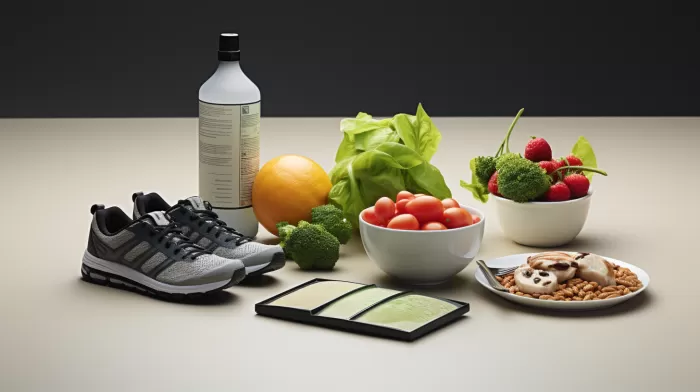If you’re looking to take your exercise and athletic performance to the next level, consider following in the footsteps of elite athletes and cutting gluten out of your diet. While the idea remains controversial, many medical experts are becoming convinced that going gluten-free can provide a significant boost in performance.
Take world-renowned tennis player Novak Djokovic, for instance. He transformed his career by simply switching up his diet. In his book, Serve to Win: The 14-Day Gluten-Free Plan for Physical and Mental Excellence, Djokovic explains that the key to losing weight, finding mental focus, and achieving optimal health was his new gluten-free diet. As a result of this shift, he went on to win three Grand Slams and over 36 consecutive tennis matches, securing his No. 1 ranking by the Association of Tennis Professionals.
The Problem with Gluten
Gluten is a protein found in wheat, barley, and rye. Despite it’s widespread presence in many foods we eat daily, like bread, cookies, cakes, beer, and crackers, our bodies struggle to digest it. According to Alessio Fasano, director of the Center for Celiac Research at Massachusetts General Hospital for Children, “gluten is useless” from a nutritional standpoint. Consuming these gluten-heavy foods is essentially “asking your GI system to do an impossible mission: to digest something that’s not digestible.”
Life-changing Results
When it comes to eliminating gluten from your diet, the benefits can be truly remarkable. Runner and writer Anna Medaris Miller shares her experience of cutting out gluten: “Since cutting gluten out of my diet in August of last year, I’ve noticed a profound change: My digestion is gentler, my sleep is sounder, my energy level is more even. These benefits also seem to have led to improved athletic performance. Since going off gluten, I placed in a race for the first time in my adult life, won a small community biathlon and achieved a personal best in a 5K run. Most important, I felt good while doing it.”
Gluten Sensitivity and Celiac Disease
For some, cutting out gluten isn’t just an athletic performance booster, but a medical necessity. Those with celiac disease, an autoimmune disorder, must avoid gluten to prevent damage to their small intestines. In addition, people with non-celiac gluten sensitivity can experience symptoms such as abdominal pain, bloating, fatigue, and brain fog when they consume gluten. Both of these conditions can also contribute to nutrient deficiencies and impact overall health. By removing gluten from their diets, many individuals affected by these issues experience relief from their symptoms and improve their overall well-being.
Tips for Going Gluten-Free
If you’re considering making the switch to a gluten-free diet, it’s important to be mindful of how you approach this change. Here are some tips to help you transition smoothly:
- Do your research: Familiarize yourself with safe, gluten-free foods and ingredients. Keep in mind that gluten can be found in unexpected places, such as salad dressings and soy sauce, so always read labels carefully.
-
Focus on whole, natural foods: Many whole foods, such as fruits, vegetables, lean meats, and dairy, are naturally gluten-free. Making these foods the basis of your diet can make going gluten-free a whole lot easier!
-
Avoid processed, packaged “gluten-free” foods: While there are plenty of convenience foods labeled as gluten-free on the market, many of them are highly processed and can be just as unhealthy as their gluten-containing counterparts. Try to minimize your reliance on these products and focus on fresh, whole food choices instead.
-
Seek out gluten-free grains: Just because you’re going gluten-free doesn’t mean you need to give up on grains entirely. There are plenty of delicious and nutritious gluten-free alternatives out there, such as quinoa, brown rice, and millet, to name just a few.
-
Find support: Going gluten-free can be challenging, especially at first. Lean on friends, family, or online communities for guidance and encouragement as you navigate this dietary change.
While going gluten-free may not be for everyone, there’s no denying the fact that numerous elite athletes and everyday people alike have experienced substantial improvements in their health and performance by ditching this troublesome protein. Give it a try for yourself and see the difference it can make in your fitness journey!



